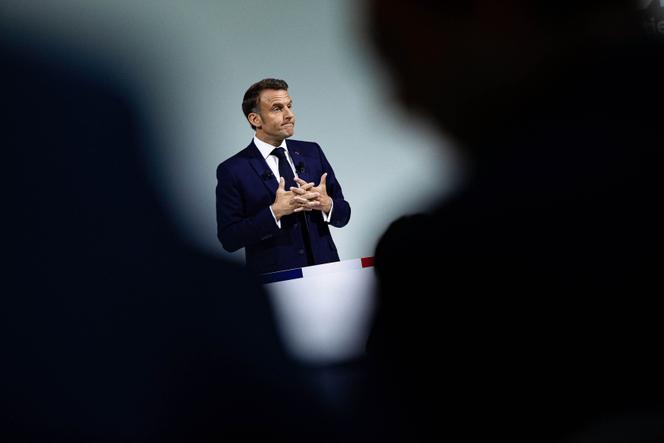


It was "with a certain satisfaction," according to one witness, that Emmanuel Macron received the first results of the second round of the parliamentary elections early on the evening of Sunday, July 7. The predicted catastrophe did not occur. Surrounded by some 20 party leaders and ministers, the French president followed the results of the parliamentary elections throughout the evening "as they came in, constituency by constituency," according to his entourage. With 168 seats, the presidential camp salvaged its honor.
Radical left leader Jean-Luc Mélenchon's call for him to "bow down" and "admit this defeat, without trying to get around it" left Macron unmoved. In the Salon Murat at the Elysée Palace, where coffee, Chateldon mineral water and Coke Zero were served, he deplored a "harsh, violent" campaign. "We now need to calm the country down and let things take their course in the Assemblée," he urged. He also implored ministers and leaders of the former majority, who have become deeply divided in recent days, to "cherish the unity of the central bloc."
"If ambitions are legitimate, there will be a time for them to express themselves, which has not yet come," he lectured, while Prime Minister Gabriel Attal, Interior Minister Gérald Darmanin and Horizons (part of the presidential coalition) head Edouard Philippe (the latter two attended virtually) already had the 2027 presidential election in their sights. During the evening, the president did not return to his decision to dissolve the Assemblée Nationale. "We don't cry over spilled milk," observed one participant.
The Elysée was nonetheless overcome by relief on discovering that the presidential camp would finish, against all odds, ahead of the far-right Rassemblement National (RN). "For Emmanuel Macron, sitting opposite Jordan Bardella [at the cabinet meeting] was unthinkable," asserted the writer Bernard-Henri Lévy, who regularly interacts with him.
After seven years of a "top-down" presidency, Maron, who said he was going into this election "to win," no longer holds all the cards and will, for the first time, have to deal with his opponents. Prime Minister Attal observed that "the center of gravity of power will now be more than ever in the hands of Parliament and therefore (...) of our fellow citizens." Historian Patrick Weil said that the new Assemblée Nationale "will be a sovereign Assemblée, whose legitimacy is strong because of the high turnout, and over which the president will have no control. Because the MPs were elected either against the president of the republic or in spite of him."
You have 55.4% of this article left to read. The rest is for subscribers only.
